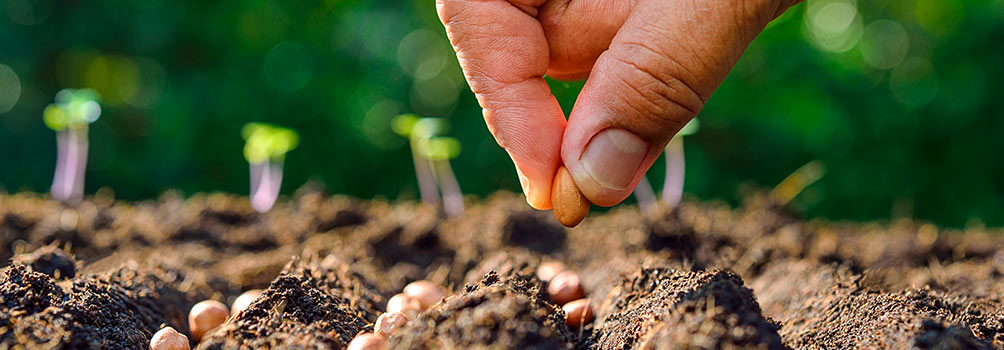![Sea beats are common ancestors of spinach, chard and modern beets. [Image by Rmrony, via Wikimedia Commons]](https://gurneys.com/wp-content/uploads/2015/02/800px-Sea_Beet1-300x225.jpg)
[Image by Rmrony, via Wikimedia Commons]
Every garden tells a tale. Seeds, the smallest, single most essential constituent of a garden, have their own stories- ancient, diverse and very intriguing. These produced vegetables have been propagated for centuries, and have evolved from wild species to the cultivated vegetables we know today! The stories of evolution of beans, beets, chards and many of your favorite vegetable seeds can give valuable insights into their characteristics and growth mechanisms – and this knowledge can help us succeed with our modern plants! Bean and Pea seeds
The wild forefathers of beans were quite dramatic – seed dispersal involved a literal explosion of the pods, which would result in seeds getting scattered as far as 10 feet away from the parent crop. Modern day bean and pea varieties might be a lot less dramatic, but they remain viable for several years. The young plants are a big hit with rabbits, mice and other animals and ergo, but will do well with some protection in form of row covers. The flowers of both beans and peas are self pollinating, so you need not worry about the covers keeping out beneficial insects.
Beets, chard and spinach all belong to the same plant family – with this in mind, we can find many similarities between these vegetables. Modern day beets and chard are the ancestors of wild sea beets, coastal plants prevalent in West Asia and Europe. Like their wild ancestors, chard and beet seeds are salt-tolerant and primarily wind-propagated. They’ll sprout in clumps that require thinning. Spinach seeds, much like their aforementioned relatives, are cold tolerant and may not germinate if the soil temperatures are too high. Luckily, there’s a way around- germinate spinach seeds in a cool place and then move the seedlings to your late summer garden. This will set you up for a superb fall crop!

